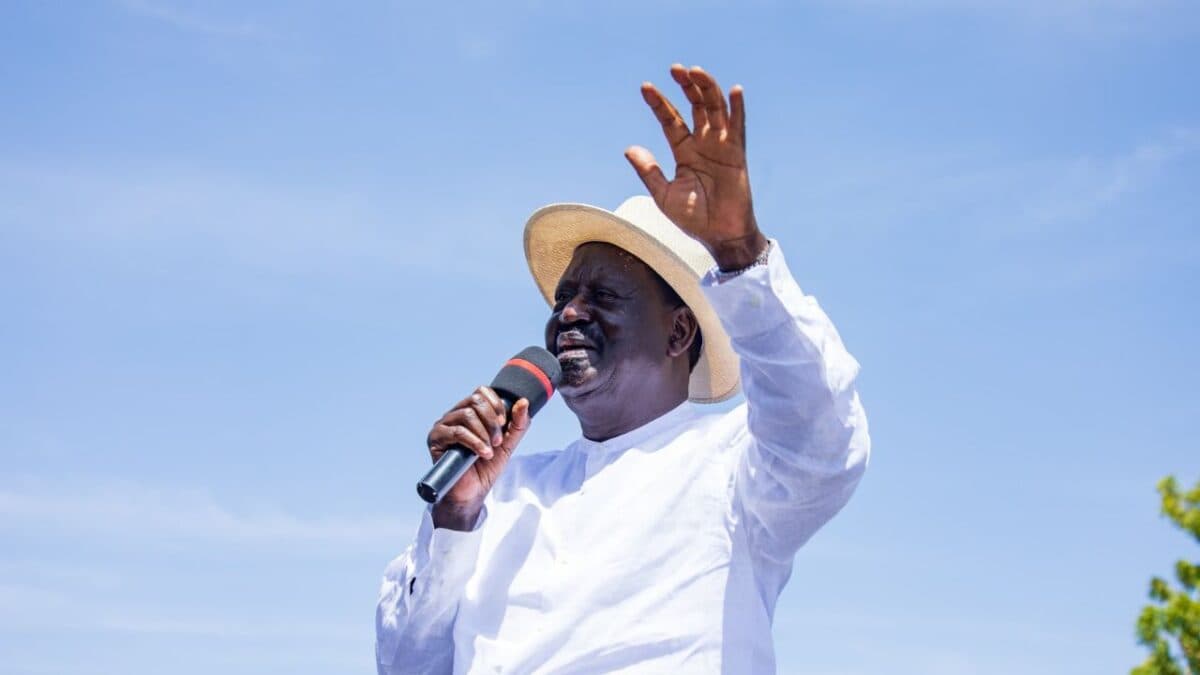We're loading the full news article for you. This includes the article content, images, author information, and related articles.
A forensic look into the political discourse surrounding opposition leader Raila Odinga reveals a concerted effort to shape public perception, with significant implications for Kenya's political trajectory and policy debates.

NAIROBI, Tuesday, November 18, 2025 (EAT) – Kenya's political arena is witnessing an intensified battle of narratives centered on the legacy and current standing of veteran opposition leader Raila Odinga. A recent opinion piece in the Daily Nation newspaper argued that politicians must cease misrepresenting Odinga's political ideals, stating his "true dreams are deeply embedded in the citizens' minds." This reflects a broader, ongoing struggle to define his role, particularly following his unsuccessful bid for the African Union Commission (AUC) chairmanship and the shifting alliances within the nation's political coalitions.
An analysis of public statements and political maneuvering reveals several key themes being used to frame Odinga's political identity. These narratives, propagated by figures from across the political divide, often pivot on his historical roles, his recent cooperation with the government, and his future influence on Kenyan politics.
One prominent line of attack revolves around the perception of betrayal, particularly following agreements with ruling administrations. Critics frequently point to the March 2018 handshake with former President Uhuru Kenyatta and the more recent cooperation with President William Ruto's government as evidence of abandoning his opposition base for personal gain. This narrative suggests a departure from his long-held role as a champion for democratic space and accountability.
However, proponents and allies of Odinga frame these actions as necessary compromises for the sake of national unity and stability. They argue that such political realignments have historically pulled Kenya back from the brink of turmoil, particularly after contentious elections. In a New Year's message for 2025, Odinga himself urged Kenyans to come together to solve national challenges, a theme consistent with this narrative of prioritizing the nation over political division.
Odinga's campaign for the AUC chairmanship, which officially began in 2024 and concluded in early 2025, has been another focal point of political interpretation. Some political actors have portrayed the bid as an honorable transition to continental statesmanship, leveraging his extensive experience for the benefit of Africa. This view was supported by the Kenyan government, which officially endorsed his candidacy.
Conversely, other political commentators and opponents have framed it as a calculated retreat from the local political scene. This narrative suggests the move was an exit strategy after five unsuccessful presidential bids. The failure to secure the AU position has further fueled this debate, with questions arising about his next steps and continued relevance in domestic politics.
The internal dynamics of the Orange Democratic Movement (ODM) party and the broader Azimio la Umoja One Kenya Coalition Party are also central to the discourse. Following Odinga's increased focus on the AU campaign and subsequent developments, fissures have appeared within the opposition coalition. Key allies have announced plans to form new alliances, signaling a potential collapse of the once-vibrant coalition that challenged the Kenya Kwanza administration in the 2022 elections.
Statements from within the Kenya Kwanza administration have sometimes sought to leverage these internal shifts. For instance, following a period of political tension, UDA Secretary-General Hassan Omar stated in November 2025 that the best way to honor Odinga's legacy would be to fully implement the recommendations of the National Dialogue Committee (NADCO) report, a product of bipartisan talks. This narrative positions the ruling party as the custodian of a reconciliation process that Odinga was central to, subtly absorbing his agenda.
The persistent misrepresentation or strategic framing of a key political figure like Raila Odinga has profound implications for Kenya. It shapes public opinion, influences voter behavior, and can either escalate or de-escalate political tensions. For the Kenyan public, discerning fact from political spin is crucial. Fact-checking organizations have repeatedly highlighted the prevalence of misinformation, especially during periods of heightened political activity.
As the country moves further from the 2022 election and looks toward the 2027 cycle, the battle to define Raila Odinga's legacy and future role will undoubtedly continue. Whether he is viewed as a unifying statesman, a compromised political actor, or a perennial champion of reform depends entirely on which narrative captures the public's imagination. This war of words underscores the critical need for a political discourse based on verifiable facts and a clear-eyed analysis of policy and ideology, rather than personality-driven narratives.
Keep the conversation in one place—threads here stay linked to the story and in the forums.
Sign in to start a discussion
Start a conversation about this story and keep it linked here.
Other hot threads
E-sports and Gaming Community in Kenya
Active 9 months ago
The Role of Technology in Modern Agriculture (AgriTech)
Active 9 months ago
Popular Recreational Activities Across Counties
Active 9 months ago
Investing in Youth Sports Development Programs
Active 9 months ago
Key figures and persons of interest featured in this article